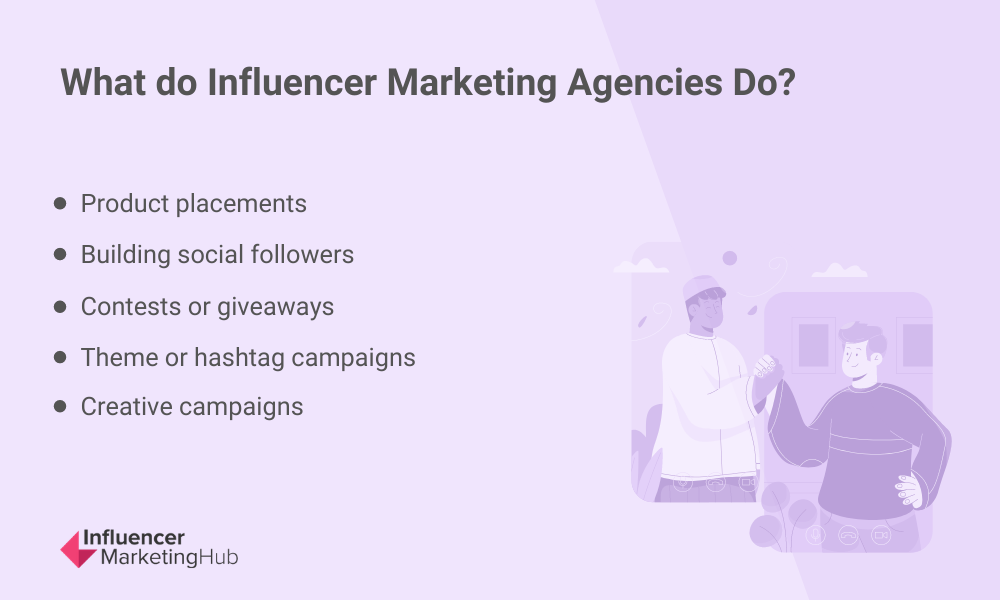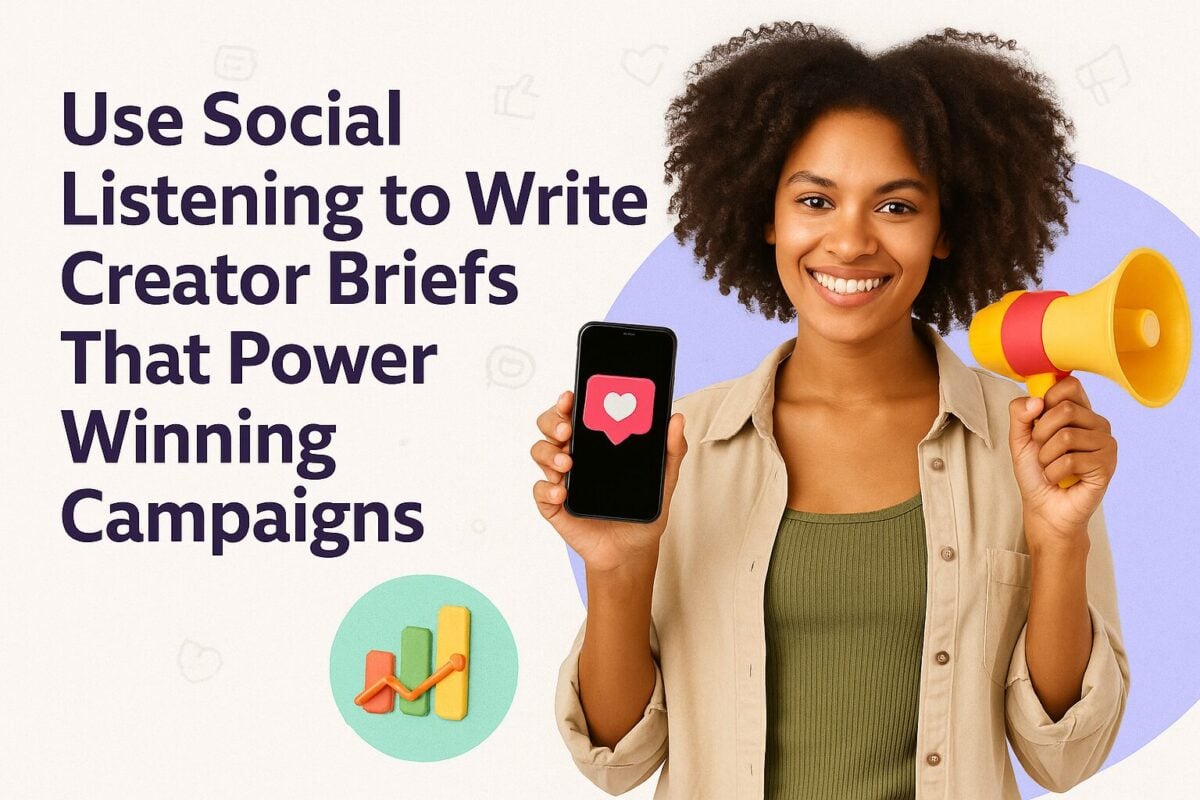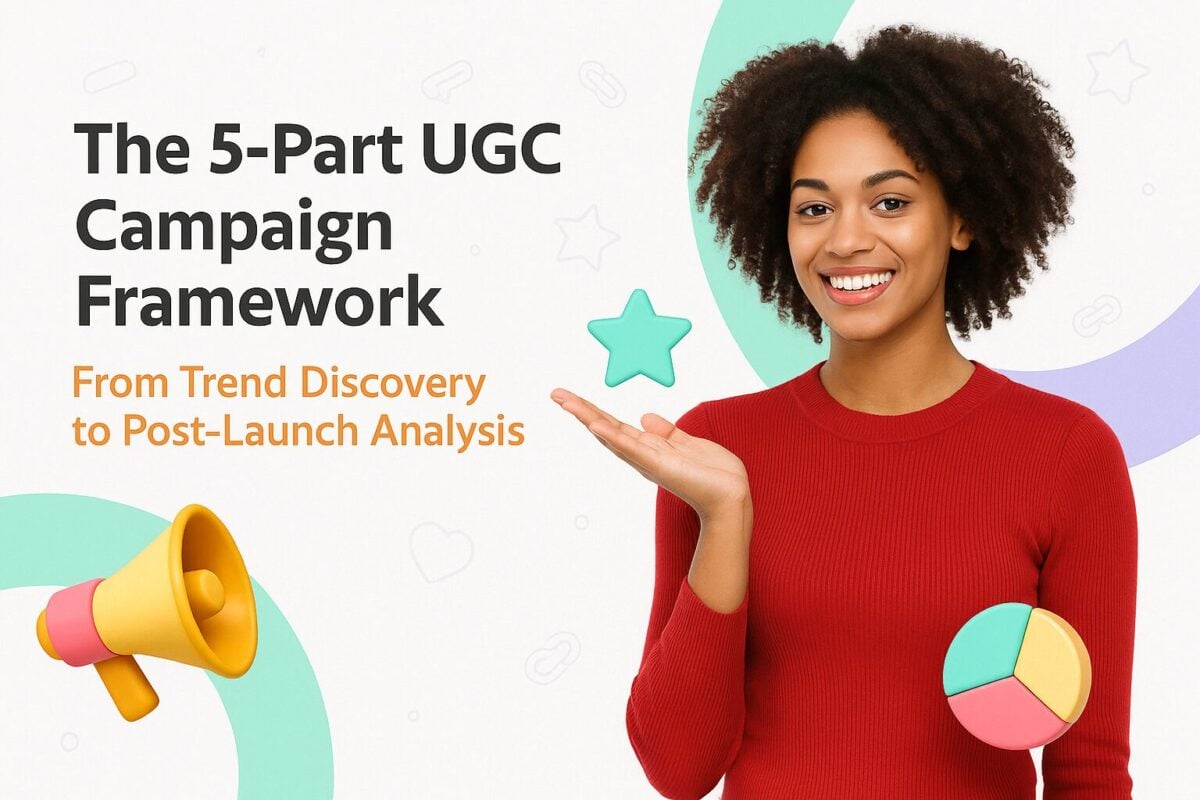There are generally three approaches you could take if you wanted to engage in influencer marketing:
- Organic – you search for and build relationships with influencers yourself. You then carry out your influencer campaigns in-house
- Platforms – you still run your influencer campaigns internally, but you use specialist tools to find suitable influencers and possibly other stages of the influencer marketing process
- Agencies – you pay a specialist marketing agency to create and operate your influencer campaign for you, including influencer selection
Many firms use advertising agencies for much of their existing marketing, so it is a natural extension for them to delegate their influencer marketing to a specialist agency as well.
What do Influencer Marketing Agencies Do?:
- What is an Influencer Marketing Agency?
- What do Influencer Marketing Agencies Do?
- Influencer Marketing from an Agency’s Point of View
- How do Influencer Marketing Agencies Differ From Influencer Marketing Platforms?
- Why Would You Work With an Influencer Marketing Agency?
- Questions to Ask an Influencer Marketing Agency
What is an Influencer Marketing Agency?
As the name indicates, an influencer marketing agency is an organization that works with brands and influencers to run influencer marketing campaigns, predominantly via social media. Some agencies specialize in producing influencer campaigns using just one or two social networks, while others are happy to work with influencers on virtually every social channel.
Full-service influencer marketing agencies manage campaigns from start to finish. They organize everything from the ideation and planning up to the reporting at the campaign’s conclusion.
Although there are many specialist influencer marketing agencies, some creative agencies, social media agencies, media buying agencies, and influencer talent agencies offer influencer marketing services.
What do Influencer Marketing Agencies Do?
Influencer marketing agencies strategize, execute, and manage influencer marketing campaigns for their clients. These can take various forms, including product placement, sponsored content, paid sponsorships, and more overt advertising by influencers for brands.
Most influencer marketing agencies build relationships with top influencers in a wide range of niches. They can go to these influencers whenever a client wants to run a relevant campaign. This makes it easy for agencies to recommend suitable influencers to brands when they are ready to undertake a campaign.
Influencer campaigns typically involve one or more of the following types of activities:
- Product placements – where an influencer integrates a brand’s product into their social media content, e.g., referencing a product in a post, including it in an image or video, or even in a Story
- Building social followers – here, the focus is on increasing the popularity of a brand’s social channels. Sometimes an influencer will even take over and operate a brand’s social account for a short time, bringing their large audience with them. The brand hopes, of course, that a portion of those visitors will continue to return even after the influencer’s takeover.
- Contests or giveaways – these campaigns involve an agency coordinating some form of competition that a well-known social influencer promotes
- Theme or hashtag campaigns – here, brands work with an influencer to create and share content around some central theme or hashtag. Ideally, the influencer will ask their followers to participate and use the hashtag with some form of user-generated content (UGC)
- Creative campaigns – these encourage social media influencers to create content to reflect a brand’s message or theme
Often an influencer agency will work with influencers to create the content that the influencers share.
Influencer Marketing from an Agency’s Point of View
A while back, we interviewed Chris Wilson, co-founder of former UK influencer marketing agency PMYB, on his views about what an influencer marketing agency does.
Brands approach an agency with a brief asking for a campaign that meets some goal, for example, improving conversions, traffic, downloads, or awareness using influencers. The agency will then create a proposal highlighting why they believe they are the right agency for the brief.
The proposal would suggest that in the campaign, the agency would:
- Make the creative and content strategy (e.g., hashtags, locations, timings, influencer niche selections, how to communicate the main campaign message, and platforms.)
- Produce the campaign timeline
- Find relevant insights on the brand, competitors, industry, and audience
- Find and select the most relevant influencers for the brand and campaign
- Analyze potential influencers to ensure that they are the best for the campaign
- Outreach to the influencers, brief them and contract them
- Manage the influencers and produce the content with them, so the brands don’t have to
- Handle all communications with influencers
- Decide on success metrics, and guarantee results at the start of the campaign
Brands, in turn, have to approve all influencers the agency finds for them, along with any content they produce for them.
Once the campaign finishes, and possibly at agreed milestones along the way, the agency reports success metrics for the campaign based on the criteria they set in the proposal.
How do Influencer Marketing Agencies Differ From Influencer Marketing Platforms?
It is best to think of influencer marketing platforms as sophisticated tools to help brands carry out various influencer marketing processes. The most common activity offered by influencer marketing platforms is influencer discovery. However, many platforms have popped up over recent years with a different focus, such as providing in-depth analytics or operating an influencer marketplace.
A brand still has to know how to use influencer tools, just like you do any other type of tool. If you lack the skills or time to run an influencer campaign in-house, influencer platforms may simplify things to some extent. However, you still have to run the campaigns yourself. Specialist influencer marketing agencies understand how influencer marketing works and have ready-made influencer contacts.
Why Would You Work With an Influencer Marketing Agency?
With many bands traditionally choosing agencies to do their marketing for them, it makes sense for them to do the same for their influencer marketing. The agencies are specialists in the field and usually have more expertise than most firms have in-house.
Full-service influencer agencies serve all stages of influencer marketing campaigns. These include:
- Determining the target audience for a campaign by category, age, geographical location, and other filters
- Identifying popular influencers who regularly participate in successful influencer marketing campaigns and are willing to work with reputable brands. The influencers need to be relevant to a brand’s message, popular with the desired target audience for the particular campaign, respected, and have genuinely impressive engagement rates.
- Developing relationships with successful influencers
- Working with influencers across multiple social platforms and understanding the nuances of each. For example, influencers on Twitch are very different from those on Instagram or Twitter. And they have incredibly diverse audiences. Agencies know which channels are best to find particular types of target audiences
- Strategizing and ideating influencer campaigns that match clients’ objectives
- Assisting influencers to create compelling and relevant content suitable for each influencer’s audience
- Working with brands and influencers to schedule posts at the most effective times to meet a campaign’s goals
- Monitoring that influencers share quality content that meets brand standards, complies with FTC and other legal guidelines, and matches what has been agreed for the campaign
Most influencer marketing agencies have a network of tried and trusted influencers. The agency can take a brand’s goals for its campaign and automatically know which influencers will best suit the campaign.
Also, the agencies act as trusted go-betweens. Most influencers are busy people, many of whom receive thousands of messages every day. Often, they will ignore and leave unread anything that they don’t perceive will directly affect their lives. They are likely to miss outreach from brands. However, once an influencer has had their first contact with an influencer agency, they are far more likely to open their future emails and other messages.
Questions to Ask an Influencer Marketing Agency
There are now many influencer marketing agencies around the world. We have a section of the Influencer Marketing Hub devoted to showcasing some of the best agencies. However, you will still need to decide on which agency will best meet your needs. Therefore, you need to research potential agencies to run campaigns for your brand. Some questions you could ask likely agencies include:
- How long has your agency run influencer marketing campaigns?
- Do you have any case studies of campaigns you have run in the same industry?
- Do you have any references from your clients?
- How large is your pool of influencers?
- Have your influencers agreed to work with you on campaigns, or do you use a tool to select from millions of potential influencers, much like an influencer platform?
- Do you have a list of influencers you recommend not to use in campaigns?
- Do you work with influencers of all sizes (nano-influencers to mega-influencers), or do you concentrate on a particular influencer type?
- What services do you include in the scope of your campaigns?
- Do you geotarget influencers’ content?
- Who owns the rights to the content shared in your campaigns? Can we reuse content outside the influencer campaign?
- If my influencer marketing is part of a more extensive campaign, can you run the remainder of the campaign as well as the influencer component?
- Which channels do you believe we should consider for this campaign?
- Can you give me in-depth analytics indicating the success of my campaign?
- What do you consider the most important metrics we should focus on for this campaign?
- How much will this campaign cost me, and what will I get for my money?
- Can you guarantee that the results of this campaign will meet our campaign objectives?





